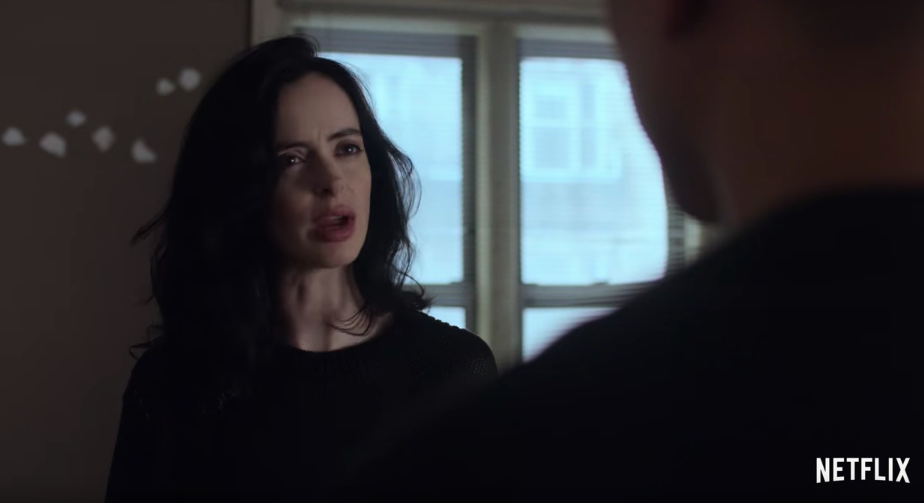Krysten Ritter is back as everybody’s favorite alcoholic, super-strong, vulgar-mouthed private eye. The second season of Netflix’s Jessica Jones, which dropped on International Women’s Day, has female directors for each of its 13 episodes.
The second installment in the Jones series finds Jessica still working as a private investigator in the same apartment building, with Eka Darville returning as Malcolm, her neighbor-turned-protégé. This time around, Jessica is looking into the mystery of how she got her powers, after an investigation prompted by her best friend Trish Walker (Rachel Taylor).
The season feels like a traditional noir-mystery, with several plot lines intersecting. Though not every scene features Jones as a traditional protagonist, we rarely have information she doesn’t, making this season play out more like a puzzle than the previous year.
Ritter is as great as ever. Her wit is biting and her language is foul, but she’s added a depth following her relapse with Kilgrave in season one. Her first shining moment comes when she goes to court-ordered anger management and talks about her problems while bouncing a ball against a wall, only to break it. Ritter’s performance is raw — it’s apparent she feels trapped in anger management because her powers make some of the exercises meaningless.
The unsung hero of the season is Carrie-Anne Moss, who is back as Jeri Hogarth. After getting a tough diagnosis, Hogarth struggles to hold onto a position as a partner in her firm and starts to make dangerous decisions. Moss has played Hogarth in multiple Marvel Netflix series, but she brings a fresh new energy to the character that makes her more sympathetic this time. She even has Jessica avoiding cynical comments when they share an emotional scene.
The show’s timing is perfect. In the wake of the #MeToo movement, this show feels like it has a clear voice, and that’s the voice of the women performing, writing and directing. At the same time, it’s not overly preachy in its approach. Instead, the show holds up complex emotions and character arcs to the screen and allows the audience to empathize.
Season two of Jessica Jones reminds us what’s so good about Marvel shows when they first come out: character development. While The Punisher had a great arc for Frank Castle, the show’s hook felt more like a message about military and the impact of violence. That same impact is definitely felt in this show, but the pacing is a lot slower than in previous series, allowing Ritter and Moss to develop naturally, almost in real time.
The slower pacing also lends itself to a realistic look at the consequences of season one. Jessica had to kill Kilgrave to save herself. Though it’s understood as necessary, the weight of taking a life remains with her, as does the pain of revisiting the time she got her powers and lost her family all at once.
Season two is currently streaming on Netflix. It’s a great new show for any fan of Marvel, mystery or kick-ass women.



